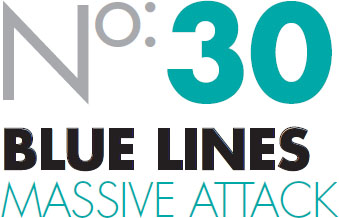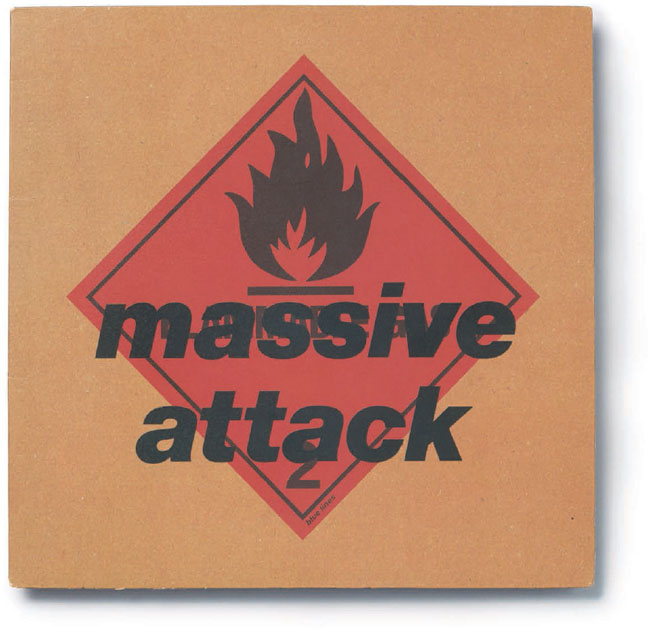
Virgin
Produced by Massive Attack, Cameron McVey and Jonny Dollar
Released: April 1991
TRACKLISTING
01 Safe from Harm
02 One Love
03 Blue Lines
04 Be Thankful for What You’ve Got
05 Five Man Army
06 Unfinished Sympathy
07 Daydreaming
08 Lately
09 Hymn of the Big Wheel
Who would have thought Bristol would be the place to be? For a time in the late 1980s, this unattractive west-coast English port changed music. Most of the action came from the Wild Bunch – a loose collective of musicians and DJs who adapted the Jamaican tradition of sound systems to British clubs. It became a logical move from playing in clubs to remixing and producing their own records. The Wild Bunch included Neneh Cherry, Soul II Soul’s Jazzy B, Tricky and what would become Portishead. Horace Andy described the Bristol sound as the ‘new world music’ and this was in large part due to the diversity – English, West Indian and American musicians whose backgrounds were in hip-hop, reggae, rap, soul and pop music – all collaborating together. It was soul music but not as we had known it.
‘When we were the Wild Bunch,’ explained Grant ‘Daddy G’ Marshall, ‘we got our reputation as a sound system from the fact that we played all kinds of music – punk, funk, reggae. For us to try and make an album that’s all one sound just wouldn’t be natural.’
Daddy G, Robert ‘3D’ Del Naja and Andy Vowles, aka Mushroom, appeared in 1991 as Massive Attack with the game-changing album Blue Lines. They were ably assisted by Cherry, Tricky and the vocalists Shara Nelson and Horace Andy (already a wellknown reggae singer-songwriter). Blue Lines is generally acknowledged to be the first trip-hop album (a term that didn’t appear for some years) but in fact it’s such a bold musical statement that it defies easy classification. ‘I was still DJing,’ said Daddy G, ‘but what we were trying to do was create dance music for the head, rather than the feet’.

John McCready wrote in The Face, ‘Massive Attack are Pink Floyd with bigger bass sounds and better drum patterns. Sometimes they are that trippy, and most of the time they are that good. A spaced out mix of dub tactics, ambient effects and downright surreal rap.’
Unlike the club music that had come before, Blue Lines was down-tempo with heavy dub grooves that really moved forward but at a languid pace. The lyrics were thoughtful.
Some rapped at a whisper against the big gospel sound that Nelson brought to the party. This was music that transcended nightclubs and genres while at the same time promoting a pan globalism. ‘Hymn to the Big Wheel’ for instance, with its hip-hop didgeridoo in the mix, delivers the message of environmental awareness and Buddhist positivism but never sounds false or preachy. The opening track, ‘Safe from Harm’, with its anti-violence message delivered with a dose of Billy Cobham’s jazz drumming, was released at the height of the first Gulf War and spelt out Massive Attack’s commitment to do more than make good time music.
Blue Lines’ key track is ‘Unfinished Sympathy’ where the insistent beat is moved along by sampled percussion and the percussive effect of a distant vocal chiming ‘hey hey hey’ grooving against a massed string section and Shara Nelson bringing her best soul diva voice. This was an influential, landmark song influencing many subsequent British artists, and even the video clip, a single shot of Nelson walking along the street, has become a legend – the Verve’s ‘Bitter Sweet Symphony’, in particular, pays respect to both the song and the video.
Massive Attack would never release an album this strong again. But in its wake came legions of drum ’n’ bass and trip-hop and countless other permutations of soul music. Massive Attack had opened the door and club music left the disco.